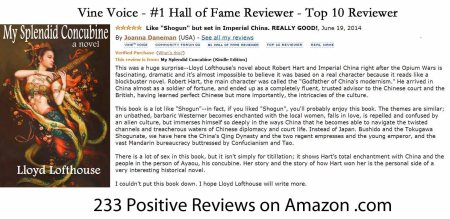Mao was fifty-six when he became China’s leader and seventy-two at the beginning of the Cultural Revolution. But who was Mao for the other fifty-five years before he ruled China?
Many outside of China only think of Mao Zedong (1893 – 1976) as a brutal dictator, but he was more than that.
For instance, as a child, his father was a stern disciplinarian who beat him and his three siblings often, and Mao became an avid reader.
And while commanding the Red Army during The Long March (1934-1935), he was a man respected by China’s peasants. Then there was Mao’s move away from Communist Russia after Nixon’s visit to China in 1972, when Mao said to Nixon, “Our common old friend, Generalissimo Chiang Kai-shek, doesn’t approve of this.”
In 1935, Mao’s poem, “The Long March”, reveals an awareness of the sacrifice and the willingness to suffer to accomplish great things.
The Red Army fears not the trials of the March,
Holding light ten thousand crags and torrents.
The Five Ridges wind like gentle ripples
And the majestic Wumeng roll by, globules of clay.
Warm the steep cliffs lapped by the waters of Golden Sand,
Cold the iron chains spanning the Tatu River.
Minshan’s thousand li of snow joyously crossed,
The three Armies march on, each face glowing.
Mao was a complex man, and it wasn’t until after the failure of the The Great Leap Forward (1958 – 1961) that the fatal attraction and power of leadership corrupted him leading to the horrors of The Cultural Revolution (1966 – 1976), that Mao’s many critics outside of China use to define him.
Anyone who follows all of Mao’s life instead of relying on his last decade would understand that he cared deeply about the common people while punishing the landowners and wealthy, who abused the people he cared about. On the other hand, his foe, Chiang Kai-shek, supported the landowners and wealthy while crushing the peasants and workers, but few outside of China condemn this brutal dictator who was a U.S. ally.
Mao Zedong Poems reveals what Mao might have been thinking about as President Johnson increased America’s involvement in Vietnam. Was Mao also warning us of what he was about to do in 1966, when he launched The Cultural Revolution?
Two Birds: A Dialogue (1965)
The roc wings fanwise,
Soaring ninety thousand li
And rousing a raging cyclone.
The blue sky on his back, he looks down
To survey Man’s world with its towns and cities.
Gunfire licks the heavens,
Shells pit the earth.
A sparrow in his bush is scared stiff..
“This is one hell of a mess!
O I want to flit and fly away.”
“Where, may I ask?”
The sparrow replies,
“To a jewelled palace in elfland’s hills.
Don’t you know a triple pact was signed
Under the bright autumn moon two years ago?
There’ll be plenty to eat,
Potatoes piping hot,
Beef-filled goulash.”
“Stop your windy nonsense!
Look, the world is being turned upside down.”
Through Mao’s poetry, we learn more about the man beyond the demonized stereotype created in the media outside of China.
And Do the Chinese People Currently Consider Mao Zedong to Be Evil or a Hero. In Forbes, Kaiser Kuo writes, “If I were forced to say there’s a dominant view of Mao among mainlanders, it would be that Mao was ‘good’ up until the very early 1950s — before the Anti-Rightist Campaign got into full swing, and before he set China on a course toward collectivization. Whether or not these beliefs can be supported by fact, it’s widely believed among Chinese that Mao led the Communist Party and its Red Army in effective resistance against the Japanese invaders; that they represented a morally superior vision over that offered by the Guomindang (the Nationalist Party) — a vision that championed egalitarianism, feminism, anti-imperialism, anti-feudalism, nationalism; and that they allowed China to ‘stand up’ after a century of abject humiliation beginning with the Opium War. After 1949, land redistribution and the Marriage Law (which was, by any measure, a very progressive piece of legislation) won them plaudits too.”
Discover China’s First Emperor Qin Shi Huangdi, the man that unified China more than 2,000 years ago.
中
Lloyd Lofthouse is the award-winning author of My Splendid Concubine [3rd edition]. When you love a Chinese woman, you marry her family and culture too. This is the unique love story Sir Robert Hart did not want the world to discover.
Subscribe to “iLook China”!
Sign up for an E-mail Subscription at the top of this page, or click on the “Following” tab in the WordPress toolbar at the top of the screen.

[…] Zedong was more than just a revolutionary and the leader of China from 1949 to 1976. He was complex man who was also a poet. Anyone who studies all of Mao’s life instead of relying on his last decade would understand that […]
Another accomplished piece of writing digging out more of the truth about this complex man, Lloyd, thank you.
Mao was also, as you have shown, an accomplished poet.
Anyone who can go through the extreme hardships of the Long March was obviously not doing that for personal vain-glory, but with a vision of change for the benefit of the people.
I’ve just finished reading an article by Arif Dirlik ( havent been able to see an online version) who discusses Mao’s idea of a “New Democracy” as a necessary stage between feudalism and socialism. Dirilik describes how during the Long March Mao developed this theoretical appraoch, deviating from Soviet style Marxism, and how much of Deng Xiao Ping’s later “opening up” of China was actually quite similiar to Mao’s ideas of “New Democracy”.
The Cultural Revolution Period was quite another thing, as you have suggested.
A hugely complex arena to dig out the truth.